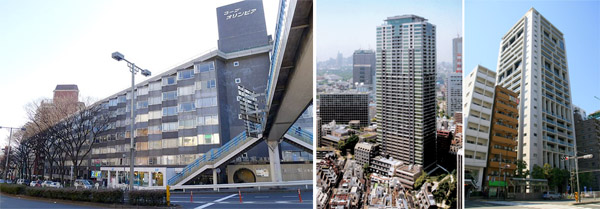Earthquake insurance premiums could rise by 30%
Earthquake insurance premiums on residential real estate in Japan could rise by as much as 30% to reflect updated earthquake risk predictions.
Up until now, the highest premium hike was in July 2014 when premiums were raised by 15.5% in response to the 2011 Tohoku disaster. To lessen the immediate burden on consumers, the Financial Services Agency, which is in charge of approving insurance premiums, is considering applying the increase in stages over several years. The higher premiums could go into effect as early as next year.Read more
Residential yields in Minato-ku - May 2015

According to real estate listing site Homes, the average gross yield on an apartment in Minato-ku in May was 4.7%, down 0.1 points from the previous month and down 0.6 points from last year. The average gross yield across Tokyo was 6.6%, showing no change from the previous month but down 0.5 points from last year.
The average asking price of a second-hand apartment in Minato-ku was 869,700 Yen/sqm as of May 1, down 1.1% from the previous month but up 9.8% from last year. The average asking price for land was 1,211,818 Yen/sqm, up 0.5% from the previous month and up 5.7% from last year.Read more
Tokyo apartment sales in April 2015

The following is a selection of apartments that were sold in central Tokyo during the month of April 2015:Read more
Greater Tokyo's largest apartment development announced

Chiba Prefecture announced the three developers that have been chosen to work on a large-scale apartment project in Makuhari New City in Chiba. Mitsui Fudosan, Mitsubishi Jisho and Nomura Real Estate will begin work on a 180 billion Yen (1.5 billion USD) residential complex with approximately 4,300 apartments. When complete, it will be the largest apartment complex in the greater Tokyo area.
To appeal to young family buyers, prices will kept at affordable levels, with some suggesting they could be around the 40 million Yen (335,000 USD) range. The complex will house as many as 10,000 residents when complete.Read more
89-year old bathhouse to close this month

One of Tokyo’s oldest wooden bath-houses will close its doors this month, and there are concerns that the 88-year old building could soon be demolished.
The Tsuki-no-Yu bath-house was built in 1927 in a ‘hafu’ curved gable style, which is often seen on temples and shrines. Mr. Yamada, the 70-year old owner, said his father purchased the bath-house in 1933 from its former owner.Read more
New home loan product for married couples
From April 13, Sumitomo Mitsui Banking Corporation (SMBC) began offering a new type of home loan for married couples that offers an additional life insurance component. In the event that one of the spouses dies during the term of the loan, the surviving spouse, who must also be a borrower, will be exempt from paying off the remainder of the loan.
The loan was introduced to cater to a growing number of families with two working spouses. According to the Japan Institute for Labour Policy and Training, there were 10.65 million double-income households in Japan, up 10% over the past 10 years. Almost 20% of SMBC’s home loan clients are borrowing in both spouses names.Read more
Town in West Tokyo offering free homes to new residents
 Okutama Town in the far western outskirts of Tokyo is offering free homes to entice younger residents. Under the scheme, selected families will be provided with accommodation for 15 years, after which they will receive ownership of the house for free. They will not be charged rent for the duration of the term, although they will be required to pay annual property taxes (around 30,000 Yen per year) and will have to bear any renovation and repair costs.
Okutama Town in the far western outskirts of Tokyo is offering free homes to entice younger residents. Under the scheme, selected families will be provided with accommodation for 15 years, after which they will receive ownership of the house for free. They will not be charged rent for the duration of the term, although they will be required to pay annual property taxes (around 30,000 Yen per year) and will have to bear any renovation and repair costs.
This is the second time that the town has offered free housing. In January and February, the town received over 250 inquiries and 24 applications on a house offered under the scheme.Read more
